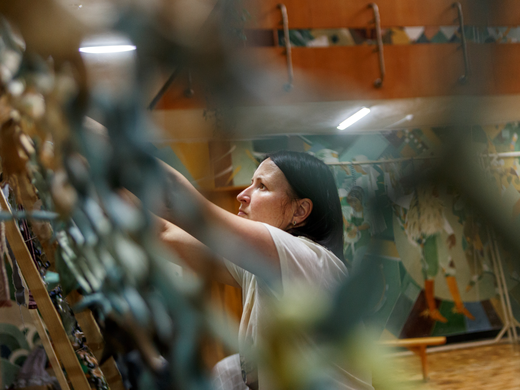non-discrimination and justice in treatment of businesses and people
In an inspiring and moving speech delivered almost a year ago, “What's Wrong with This Picture: Should We Reframe International Relations?" Madame Justice Rosalie Silberman Abella urged an audience of international relations think tanks at the Council of Councils Sixth Regional Conference to get back to basics in shaping international relations for the future. Her timeless exhortation to uphold non-discrimination and justice is particularly relevant as the international community grapples with today’s urgent challenge of mass movements of peoples.
Justice Abella used her family’s story and our collective history of the last century of conflict to raise challenging questions about world leaders’ commitment to international human rights, peace and security. At the core of her life work, and her speech, is her quest for non-discrimination and justice. She reflected on how demonstrably clear these concepts were to the nations of the world after the horrors of World War II, as they grappled with the masses of European displaced persons. Since then, she suggested, the international community may have faltered in its commitment or even lost its way.
Justice Abella reminded the audience that through the Charter of the United Nations, the “peoples of the United Nations” determined to “reaffirm faith in fundamental human rights, in the dignity and worth of the human person, in the equal rights of men and women and of nations large and small.” The UN Charter, and even the UN itself, was created for the purpose of achieving international co-operation in promoting and encouraging respect for human rights and for fundamental freedoms for all without distinction. She argued that the universal goal enshrined therein is for a just rule of law that ensures limitations on arbitrary state power and provides procedural and substantive justice.
Justice Abella noted how prolific international law has been since the founding of the UN and how many of the treaties facilitate our way of life. She observed that the international law activity in recent years has been focused on trade, on non-discrimination against investors, not people, and sometimes at the expense of democratic processes and the rights of people. She noted that the same word “non-discrimination” is used for the basic human right and the basic trade and investment right. She expressed concern that international human rights law has not kept up with international trade law in devising fair and impartial adjudication of disputes and effective and enforceable remediation of wrongs. She wondered whether recent trends in international relations and international law were undermining the legitimacy of the institutions that were created to secure a lasting peace for all humanity.
The recent discovery on an Austrian highway of a cold meat delivery truck filled with 71 dead migrants horrifically mocks Justice Abella’s argument that international law has become more concerned with commercial freedoms than human rights protections: it appears to be easier for a commercial vehicle to move across borders than for people fleeing persecution. While global sympathy and protection for peoples displaced by violence, conflict, environmental disaster and economic crisis seems to be plummeting (For more on this, see: Guy Goodwin-Gill's Refugees' plight in Australia: from compassion to 'vicious and vindictive'; Hazel Southam's How Austria has become central to Europe's migration crisis; and Arne Delfs & Rainer Buergin's Merkel tells Germans that Refugee Crisis is Unworthy of Europe), transnational corporations are enjoying unprecedented freedom of movement to set up business and enforce investment protections around the world. Ruthless entrepreneurs who exact profits from desperate migrants are universally condemned but continue to find more victims.
While the law related to international trade has moved with lightning speed in the last few decades, global trade presents new scenarios in the quest for international justice. The links between business responsibilities and human rights are still being forged. John Ruggie as UN Special Representative on Human Rights and Business grappled with the issues of accountability and redress for human rights abuses by transnational corporations and proposed Guiding Principles on Business and Human Rights, which have since been endorsed by the UN Human Rights Council. John Knox as UN Independent Expert on Human Rights and the Environment has drawn the connection between human rights and environmental protection. The World Trade Organization and relevant UN agencies are seized with difficult questions about how best to reconcile international trade, sustainable development and human rights. Thoughtful business leaders are realizing that the community "license to operate" needed to extend and sustain global business is best secured by consistently demonstrating their human rights and environmental commitment.
Last year, Madame Justice Abella challenged her audience to stand up for justice and non-discrimination in a globalized world. She raised profound questions about the state of international rule of law and international relations. It is clear that in the quest for a just rule of law at the international level, there is work still to be done to ensure that developments in international trade are matched by developments in human rights protections so that the international community can respond effectively to today’s pressing issues. The current migration crisis in Europe and grim discovery on an Austrian roadside remind us that but for the flowering of the concepts of non-discrimination and justice after the horrors of World War II, a little girl like Rosie might not have survived to come to Canada and become one of our Supreme Court Justices.


